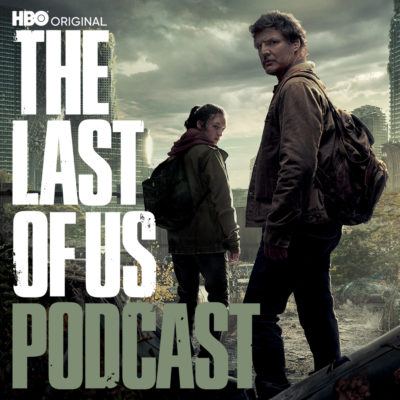5 ‘Hidden Brain’ episodes to delve into human behavior

Patterns are intrinsic to human nature, forming our world and choices we make. “Hidden Brain” identifies and focuses on behavioral patterns in its weekly episodes with host Shankar Vedantam. Episodes delve into science, research, stories, and conversations to show connections between the science of humans’ inner workings, behavior, and the outer world. Shankar speaks with an assortment of interesting guests. From scientists to magicians, the lineup of guests share advice while we hear more about ourselves and the brain.
In August, “Hidden Brain” releases a series of episodes called “You 2.0.” Upcoming episodes will discuss how to foster more empathy, apply wisdom in times of confusion, and how to learn from mistakes. Shankar will also dive into our relationship with the past and how we remember. This grouping of topics helps listeners reshape how they think about challenges, approach relationships, and interact with the world.
If you’re into social sciences, we’ve rounded up some standout episodes:
Humor Us
Why is it that toddlers laugh over 300 times a day and adults do not reach this statistic so quickly? Behavioral scientist Jennifer Aaker from Stanford Business School wonders why many people lack humor in their lives as they age. Jennifer observed polls by the company Gallup, surveying people in 166 countries about laughter, asking, “Did you smile or laugh yesterday?” For teenagers, many said yes. For young adults in their early 20s, they said no. The 70-80 age bracket said yes. This is called a “global humor cliff,” a point adults tumble off of around 23 years of age, according to the poll – the point in life where many join the workforce.
The guests on the podcast explore how using humor to charm and disarm can be effective, especially when used by government officials and in business scenarios. Did you know that Ronald Regan kept a list of running jokes and funny one-liners with him at all times to sprinkle into conversations?
In this episode of “Hidden Brain,” we’ll also learn how Secretary Madeleine Albright strategically used humor while attending a summit in the Philippines. Madeleine was asked to perform a skit and invited the Russian diplomat in attendance to sing a version of “West Side Story,” reworking the lyrics as “East West Story.” She used this humorous skit to her advantage at a high-stakes negotiation. As a result, a potential disaster was thwarted and a serious situation was lightened. Aside from shifting the mood of the room with laughs, Madeleine exercised humor as a diplomatic tactic, and the negotiation went better than anticipated.
Why Nobody Feels Rich
This episode explores the psychology of inequality. Dr. Keith Payne, a psychologist at the University of North Carolina, speaks about how our brain is wired to compare ourselves to others, and how it affects our behavior. Dr. Payne explains the first time he realized the inequality of money as a fourth grader. He was on the school’s free lunch program. One day, a new cafeteria lady who was not aware of his status asked him to pay for lunch. He then realized other kids had been paying for lunch the whole time and he must be poor since his lunches were comped. Because of this new awareness, fourth-grade Dr. Payne viewed things differently.
Dr. Payne has written The Broken Ladder: How Inequality Affects The Way We Live, Think And Die. In the podcast and in his book, he uses the example of flying on a plane to exemplify class structure and social hierarchy. When you board the plane, you walk through first class where everyone appears to have enough leg space. If you’re flying coach, you walk through business class, then arrive at your economy seating assignment where passengers are crammed.
Dr. Payne explains a study on the psychological and behavioral results that are part and parcel of “experiencing that kind of hierarchy.” Researchers looked at incidents of air rage, violent in-flight episodes, and discovered a correlation. Such acts were more frequent in planes with a first-class cabin than in planes without one. Other factors could come into play, such as increased irritation with longer travel times. But the study also looked at air rage in flights where economy class passengers did not board through the first class cabin. Lower incidents were reported.
We’ll learn that humans have a tendency to compare their status upward at any economic level. And that even at the top 1% of earners, there’s always someone who seemingly has more. This episode explains how this awareness of inequality, even in the category of 1%-ers, has psychological impacts. Shankar also looks at other studies to explore emotional reactions and behavioral modifications that result.
Minimizing Pain, Maximizing Joy
Philosopher William Irvine joins “Hidden Brain” to explore Ancient philosophical principles. The examples cited show listeners how to respond better to disappointment and misfortune. William looks at Stoicism. He shares a phrase he believes the ancients would have subscribed to: “Do what you can with what you’ve got where you are.” You cannot change the past, but you can change your tomorrow.
William defines “stoicism” in two ways. When William capitalizes Stoicism, he is referring to the Ancient Romans’ way of avoiding negative emotions. Lowercase stoicism in William’s definition means a person who accepts what life presents, and actively represses emotions.
Shankar and William unpack examples of setbacks, naming the film Groundhog Day, astronaut Neil Armstrong’s lander crash, and surfer Bethany Hamilton’s shark attack. Through these examples, William explains how much of the suffering we experience is the result of our responses to life’s events, and goes through how these folks reacted in each instance — how their behavior altered their life’s trajectory for better or worse.
William shares advice, stemming from Stoic philosopher Epictetus, such as not spending time on things you cannot control and reminding yourself that things can be much worse. Stoics judged themselves on if they did the most with what was available to them, rather than winning or losing. Shankar and William spoke about how COVID-19 tested the idea of stoicism for everyone.
Eyes Wide Open
Sleep can impact our health. In 1963, 17-year-old Randy Gardner broke the world record for staying awake 11 days in a row. In this episode, Randy joins Shankar by expressing what he learned from this experience and how this can be applied to life. Randy got this idea from a New York DJ who held a “wake-a-thon” to raise money for charity. He stayed awake for eight days, and Randy decided he wanted to break the DJ’s record. Randy recruited his friends during winter break to help him avoid sleep. He battled chronic fatigue by standing as much as possible and suffered from bouts of nausea. But, with sheer willpower, he prevailed toward his goal.
Sleep researcher William Dement got wind of Randy’s experiment and paid him a visit. He performed psychological tests on Randy, and they also played sports together to study his reaction time and temperament. After Randy’s “wake-a-thon” completed, he went right back to his normal sleep schedule. Randy and his friends compiled his findings for his school’s science fair, snagging first place.
Researcher Matthew Walker discusses the greatest sleep study that occurs twice a year for everyone; daylight savings time. In the spring, where we lose an hour of sleep, hospitals see an increase in heart attacks. When we gain an hour of sleep in the fall, a decrease is noted. These are just two examples of how the brain cannot catch up on lost sleep time.
Why Conversations Go Wrong
Ever wondered about different communication styles? How sometimes, if you’re speaking the same language as the person you’re communicating with, things get misconstrued and conflict unintentionally happens? Do you want to learn how to listen better and speak more effectively, thus having better conversations? This episode expands upon all of these questions and more.
Linguist Deborah Tannen speaks with Shankar about her work. Deborah explains about how her and her husband’s conversation styles varied in terms of directness and clarity and applies this to discussing other people’s communication approach. Some people start very specific, then broaden the conversation. Whereas other people are more general, then get specific. Different styles in conversing can be influenced by culture, class, and world views – many of these factors trace back to childhood. A study analyzing groups of girls and boys is explained. In this case, the study groups exhibited different communication styles. Girls were observed playing in smaller groups, spending more time talking. Boys played in larger groups and centered around an activity where they’d tell one another what to do.
Deborah unpacked anthropologist Gregory Bateson’s idea of messages when speaking. He says the message is the meaning of words. The meta message is what it says about the relationship between those conversing. Often in miscommunication, people argue over the message when the meta message is what actually upsets us.
While Deborah was completing her PhD dissertation she began pausing mid-conversation and dissecting what was said. She said this approach might reduce conflict, especially in difficult conversations.





